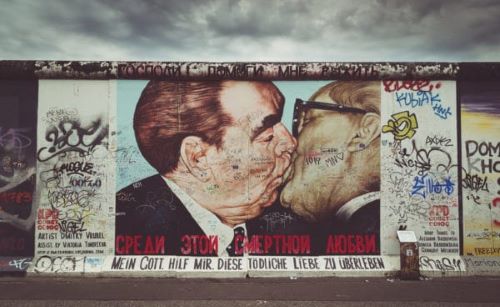東ドイツ、東ベルイン、

1966年、外国人は1日だけ東ベルリンに入ることを許可された。 駅の改札をくぐると、警官が巡視しているのが見えた。地元の若い人たちは壁の後ろに隠れながら遠くから私を見ていた。
西に戻る途中、改札係の写真を撮った。 「やめろ」の声が聞こえた。 何人かの男が私の手をつかみカメラを取った。 私は別の部屋に連れて行かれた。 「カメラを返して、パスポートを返して、フィルムを返してください。撮った写真は捨ててもOKです」と私は言った。
次に、カメラの開け方を教え、 カメラの裏表紙を外し、フィルムを光にかれらがさらしました。 1時間半後、改札から「戻る」ように言われました。
駅長の顔を今でも鮮明に覚えています。 私は逮捕を免れました。 共産主義は独裁で教科書とは異なります。現実の共産主義の恐怖の管理を体験しました。
Real communism was the management of fear,
In 1966, foreigners were allowed to enter East Berlin for only one day. When I passed through the ticket gate of the station, I saw a policeman patrol. The young people were looking at me from a distance, hiding behind the wall.
On the way back to the west, I took a picture of the ticket gate. I heard a voice saying “Stop”. Some guys held my hand and picked up the camera. I was taken to another room. “Please return the camera, return my passport, return the film, but it’s okay to throw away the photos I took,” I said. Next, I taught how to open the camera. They removed the back cover of the camera and exposed the film to light. After an hour and a half, I was told to “return” from the ticket gate.
I still vividly remember the stationmaster’s face. I escaped arrest. “Communism was a dictatorship. These were different from textbooks. Real communism was the management of fear,” I realized.
なぜマルクスの予言は失敗だったか…『資本論』の問題点 (橋爪大三郎)
マルクス入門と資本主義の未来(5)『資本論』の弱点
ぼくの見たもの、聞いたもの
暗い若者達、逃げたいと言ってきたこと。1966年東ベルリンにて